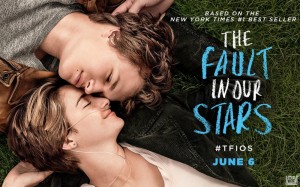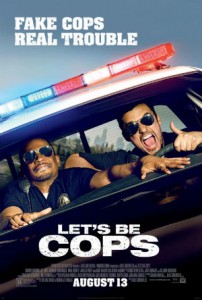Why Are We Getting So Many Split POV Stories About Couples?
Posted on September 10, 2014 at 3:27 pm
I wonder why there are three (so far) different stories coming out that tell us the same saga of an up-and-down romance from two different perspectives (POV, or point of view).
“The Disappearance of Eleanor Rigby,” starring James McAvoy and Jessica Chastain, is being released in three different versions, one called “The Disappearance of Eleanor Rigby: Them,” which alternates between her story and his, and then full-length feature films coming out later that each tell just one side of the story.
On “Showtime,” a new series called “The Affair” stars Dominic West and Ruth Wilson are the lovers who have a relationship we get to see from both points of view. The New York Times reports:
The affair begins after a happenstance meeting at a diner in Montauk, where Alison (Ms. Wilson) waits on Noah (Mr. West) and his family. Her recollection of the encounter differs from his on several crucial, often funny points, like her memory of wearing a knee-length waitress uniform: in his recollection, her skirt ends midthigh.
Anna Kendrick and Jeremy Jordan, both Broadway veterans, star in “The Last Five Years,” a film version of the popular musical that tells us both versions of the love story — with a twist. We see his story from the beginning to the end, but her version begins at the end and then goes back in time to the beginning.
It’s not unusual for a book to be told from the point of view of one character, whether narrated by an “I” in the first person or whether the narration just lets us hear the thoughts of one or more characters. In film, we often see what one character sees but it is rare to alternate points of view. One famous exception is the classic film Rashomon. A terrible, violent rape and murder is recounted by the man accused of the crime, the wife who was raped after her husband was killed, the ghost of the murdered man, and finally a witness. Many, many stories have been inspired or influenced by “Rashomon,” from a “Star Trek: TNG’s” episode “A Matter of Perspective” to “The Dick Van Dyke Show’s” hilarious “The Night the Roof Fell In.”
A far-from-classic example is a soapy pair of movies starring Elizabeth Taylor and Richard Burton called “Divorce: His” and “Divorce: Hers.” Yes, that twice-married/twice-divorced to each other (plus many others) pair should know. Mark Twain’s charming Diary of Eden gives us both Adam’s and Eve’s sides of the events of Genesis — witty and insightful, with the most deeply romantic ending of all his writing. Thanks to Kristie Miller for reminding me of Dave Berry’s classic piece about male/female thoughts about a relationship. I’m a huge fan of The Norman Conquests by the wildly talented Alan Ayckbourn. We don’t get the different perspectives of characters — we get three different plays that tell the same story from three different places, the living room, the dining room, and the garden. An exit in one play is an entrance in the other. The more you watch, the funnier it gets.
Is there a message in this new vogue for splintered storytelling? Are we in a moment of history when we are feeling a need to be more empathetic? Or are we less sure of what the truth is? Any answer I’d give, of course, would be from my own POV, so yours is just as valid. Isn’t it?



